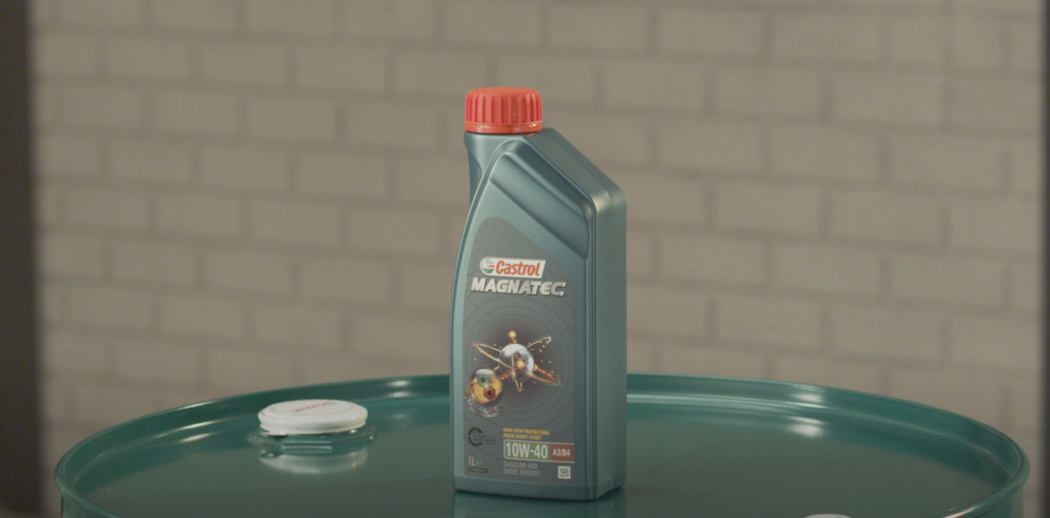In the realm of vehicle maintenance and care, the pivotal decision of selecting the most suitable motor oil emerges. Functioning as the lifeblood of your engine, motor oil stands as the sentinel of optimal operation and enduring vitality. Amidst the inquiries that frequently arise, one question commands attention: Could the utilization of 10W-40 motor oil supplant the prescribed 5W-30 variant? Within the upcoming discourse, we shall embark on a voyage to decipher the disparities that distinguish these two breeds of motor oil. Furthermore, we shall navigate the scenarios wherein the adoption of 10W-40 finds merit, all while dissecting its potential ramifications upon the symphony of your engine’s performance.
Understanding Motor Oil Grades: The Numbers Game
Before we delve into the specifics of 10W-40 versus 5W-30, let’s understand what those numbers mean. The numbers indicate the viscosity of the oil at different temperatures. The “W” stands for “winter,” and the number preceding it represents the oil’s viscosity during cold weather conditions. The lower this number, the better the oil flows in cold temperatures. The second number represents the oil’s viscosity at operating temperatures, with higher numbers indicating thicker oil.
5W-30 Motor Oil: The Standard Choice
At the heart of 5W-30 motor oil’s effectiveness lies its carefully formulated viscosity characteristics. The numbers in the name, “5W-30,” hold the key to understanding its properties. The “5W” indicates the oil’s viscosity rating at low temperatures, with the “W” standing for winter. This means that even in cold weather conditions, when traditional oils might struggle to flow smoothly, 5W-30 maintains a low viscosity, ensuring easy circulation during start-up.
| Viscosity Grade | Temperature Range |
|---|---|
| 5W | Cold Temperatures |
| 30 | High Temperatures |
The Benefits of Low Viscosity at Start-Up
- Efficient Cold-Start Lubrication: In colder climates, conventional oils can thicken, leading to sluggish flow and inadequate lubrication during start-up. 5W-30’s low viscosity ensures that it flows quickly and coats vital engine components, reducing friction and wear precisely when they’re most vulnerable;
- Reduced Engine Wear: The critical moments just after ignition can cause significant wear due to lack of lubrication. 5W-30’s ability to swiftly reach engine parts helps minimize friction and wear, prolonging the engine’s lifespan;
- Fuel Efficiency: By reducing the initial resistance caused by thick oil, 5W-30 contributes to improved fuel efficiency during the crucial warm-up phase.
Stable Viscosity, Reliable Performance
As the engine heats up, 5W-30 motor oil demonstrates its adaptability. Despite its low-temperature fluidity, it transitions smoothly to a stable viscosity grade of 30. This ensures consistent and reliable lubrication even under high operating temperatures. Whether you’re navigating scorching summer roads or tackling demanding uphill climbs, 5W-30 remains steadfast in its commitment to protecting your engine.
Why 5W-30 is Widely Recommended
- Manufacturer Approval: Many vehicle manufacturers specifically recommend 5W-30 motor oil for their engines, attesting to its compatibility and performance benefits;
- Versatility: 5W-30 is suitable for a wide range of vehicles, from sedans to SUVs, and can often be used in both gasoline and diesel engines;
- Temperature Extremes: Whether you’re in a region with icy winters or sweltering summers, 5W-30 is engineered to deliver optimal performance across a broad temperature spectrum.
10W-40 Motor Oil: When Might It Be Suitable?

Motor oils are not created equal, and neither are the conditions in which you drive. One might say oil is the lifeblood of your vehicle, offering the essential lubrication that keeps your engine running smoothly. If you’ve ever pondered the cryptic numbers on motor oil containers, such as 10W-40, you’re not alone. Understanding what these figures mean can aid you in making an informed decision that could prolong your vehicle’s lifespan and improve its performance.
Deciphering the 10W-40 Code
Before diving into the scenarios where 10W-40 is most suitable, let’s break down what the numbers and letters mean:
- 10W: The ’10’ stands for the oil’s viscosity rating at low temperatures, and the ‘W’ denotes winter suitability;
- 40: This number represents the oil’s viscosity at 100°C (212°F).
In simpler terms, 10W-40 is a multi-viscosity oil designed to perform well in both cold and hot temperatures, with a greater focus on high-heat stability.
Key Attributes of 10W-40 Oil
- Viscosity: It has higher viscosity compared to oils like 5W-30, providing superior sealing and lubrication at high temperatures;
- Heat Resistance: Better equipped to resist thermal breakdown;
- Flexibility: Suitable for a broad range of vehicles, including those with high-mileage or modified engines.
Now, let’s explore various situations where 10W-40 oil could be your engine’s best friend.
Scenarios Where 10W-40 Motor Oil Shines
| Scenario | Description |
|---|---|
| High Mileage Engines | If your vehicle has more birthdays than a teenager and is a trusted companion on long journeys, 10W-40 may be your best bet. The thicker viscosity is beneficial for sealing gaps and reducing leaks that often plague older engines. |
| Towing and Hauling | Does your weekend consist of towing a boat or hauling heavy loads? The engine works harder in these scenarios, producing more heat. 10W-40 offers robust lubrication, making it easier for your engine to withstand the strain. |
| Hot Climates | The sweltering heat can wreak havoc on your engine oil. The resilience of 10W-40 makes it an excellent choice for those living in hot climates, helping you avoid the nightmare of an overheated engine. |
| Modified Engines | If you’ve tricked out your vehicle with turbochargers, superchargers, or other performance-enhancing modifications, 10W-40 is a must. These modifications can generate extra heat and stress, and the fortified lubrication of 10W-40 keeps the engine protected and performing at its peak. |
Potential Impacts on Engine Performance

The selection of motor oil for your vehicle is a crucial decision that significantly influences its overall performance and longevity. While 10W-40 motor oil might be suitable for specific scenarios, there are potential impacts on engine performance that should be considered:
Cold Start Lubrication
Table: Cold Start Performance
| Cold Start Condition | 10W-40 Performance | Impact |
|---|---|---|
| Slower Circulation Time | Thicker oil circulates more slowly, potentially leading to increased engine wear during cold starts. | Moderate increase in wear during initial start-up. |
| Initial Lubrication | Thicker oil might take longer to reach all vital engine parts, causing momentary friction between moving components. | Slightly elevated friction levels at engine start. |
In colder climates, the viscosity of 10W-40 motor oil can prove to be a double-edged sword. While its higher viscosity ensures better lubrication under high temperatures, it also means that the oil circulates more slowly during cold starts. This delayed circulation could lead to momentary engine wear during the critical initial moments. A bullet list succinctly highlights these impacts:
- Slower circulation time during cold starts;
- Potential for increased engine wear due to delayed lubrication;
- Momentary friction between moving components.
Balancing Fuel Efficiency
Fuel Efficiency and Viscosity
| Oil Viscosity | Impact on Fuel Efficiency |
|---|---|
| 10W-40 | Slightly reduced fuel efficiency due to increased engine resistance. |
| 5W-30 | Typically better fuel efficiency due to lower viscosity. |
The influence of motor oil viscosity on fuel efficiency is a fascinating interplay. The thicker consistency of 10W-40 oil can create additional resistance within the engine, resulting in a marginal reduction in fuel efficiency. While this reduction might not be immediately noticeable, it’s still a factor to consider. A bullet list succinctly presents this aspect:
- Slight reduction in fuel efficiency due to higher viscosity;
- Thicker oil creates more engine resistance;
- Impact on fuel economy might not be substantial.
Oil Pump Compatibility
| Engine Design | Optimal Viscosity | Implications of Using 10W-40 |
|---|---|---|
| Designed for 5W-30 | 5W-30 | Potential strain on oil pump and components not designed for higher viscosity oil. |
| Designed for 10W-40 | 10W-40 | Expected compatibility and optimal performance. |
Engine designs and their corresponding oil viscosity specifications have a significant bearing on the performance of the motor oil. Using a viscosity that doesn’t align with the engine’s design can have consequences. If an engine is designed for 5W-30 oil and you opt for 10W-40, there’s a risk of straining the oil pump and other components that aren’t engineered to handle higher viscosity oil. To encapsulate these intricacies:
- Using 10W-40 in engines designed for 5W-30 could strain the oil pump and other components;
- Optimal performance is achieved when the oil viscosity matches the engine’s design.
Temperature Extremes
| Temperature Conditions | 10W-40 Performance | Comparative Performance |
|---|---|---|
| High Temperatures | Performs well under high temperatures due to higher viscosity. | Comparable performance with other suitable viscosities. |
| Cold Conditions | Less efficient flow compared to 5W-30 during extremely cold conditions. | Inferior flow compared to lower viscosity oils. |
Temperature extremes pose unique challenges to motor oil performance. While 10W-40 thrives under high temperatures due to its higher viscosity, it might lag behind 5W-30 during extremely cold conditions. The inferior flow of 10W-40 during such instances could impact engine lubrication and performance. This information can be concisely presented in a bullet list:
- Excellent performance of 10W-40 under high temperatures;
- Comparatively less efficient flow in extremely cold conditions;
- Consider using lower viscosity oils for enhanced cold-start lubrication.
Conclusion
In the world of motor oils, there’s no one-size-fits-all answer. The choice between 10W-40 and 5W-30 depends on various factors, including your vehicle’s specifications, usage patterns, and operating conditions. While 10W-40 may offer benefits in certain scenarios, it’s important to consider the potential drawbacks and whether they align with your engine’s requirements. When in doubt, consulting your vehicle’s manufacturer or a qualified mechanic can provide valuable insights to help you make an informed decision that ensures the optimal performance and longevity of your engine.
FAQ
It’s generally recommended to follow the manufacturer’s guidelines for motor oil viscosity. Using a different viscosity could impact engine performance and potentially void warranty coverage.
If your engine is designed to use 5W-30, switching to 10W-40 may not significantly improve performance. However, if your engine operates under conditions mentioned earlier, 10W-40 could offer better protection.
Thicker oil can lead to a slight decrease in fuel efficiency due to increased friction. If fuel economy is a priority, sticking to the manufacturer’s recommended 5W-30 might be a better choice.











